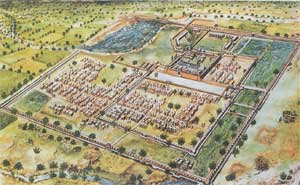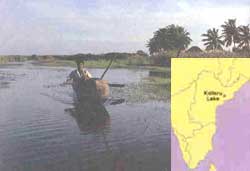
Mission impossible?
Managing the conflict

Managing the conflict

The Damodar is the most polluted river in the country today, thanks to the several industries that have sprouted on its mineral-rich banks. Experts say the only way to save the Damodar valley is for these highly polluting industries to make massive invest

Controversy has dogged the Konkan railway project since its inception. Today, many influential Goans are up in arms against the present alignment of the track, which, they allege, would wreck the state"s environment. Railway officials, of course, disagree

Port Blair, port city of the Andamans, is in a developmental cul de sac

Once hailed as a boon to health, chlorine is now charged with being carcinogenic, maiming the immune and the reproductive systems.

Is there a worldwide trend of sustained growth towards sustainable development?

The recent regulatory organ transplant Act, supposed to be a fist in the kidneys of the huge illegal bodyparts trade, has turned out to be a glancing blow

European environmentalists tackle Third World concerns of irresponsible overconsumption by northern countries

From barefoot ragpickers to rich kabariwallahs moving about in cars, the country's waste recycling industry caters to countless Indians.An attractive business proposition that most people choose to overlook, scrap Is even being imported now

A study explains why peaceful pachyderms go on rampages that leave crops and humans devastated

Planners in the ancient city of Dholavira had conceptualised an amazing system of drains, dams and tanks to manage water. To conserve every drop of water, they carefully considered everything, from site selection to extra strong city walls and even air du

A pristine lake that once drew birds of several species today lies clogged with weeds, a victim of unplanned economic development.

Water will become the most prized and precious commodity in the coming years. Internecine conflicts over the resource are already the order of the day and a global water crisis seems not too far away. But the water-guzzling US state of California is show
<p><em>For growing economies the stress has to be on patterns of natural resource use and not on the status of natural resources; that is, dealing with the causes rather than the symptoms of the problem
<p><em>Redistribution has been kept out of the agenda of the United Nations, and a new global agenda, goals and rules to share responsibility and prosperity can lead to a new world </em></p>

WHAT CAN you do, as a citizen of India, if someone decides to set up a power plant or a polluting factory in your neighbourhood? Probably precious little. You could appeal to the local pollution

Are the new industrial siting rules a boon or a bane?

Countries like India are increasingly opting for expensive, high tech water treatment systems instead of low cost, low tech water treatment alternatives.

Droughts seem to be here to stay. Wrong development policies, governmental indifference and relief schemes which don't work have led to a situation where a large part of the nation faces scarcity despite a year of almost normal rainfall

The rich nations are trying to frame the rules for trading in emissions. However, the methods being used to allocate these are questionable. ANIL AGARWAL and SUNITA NARAIN argue that the rights and responsibilities of both rich and poor countries must be